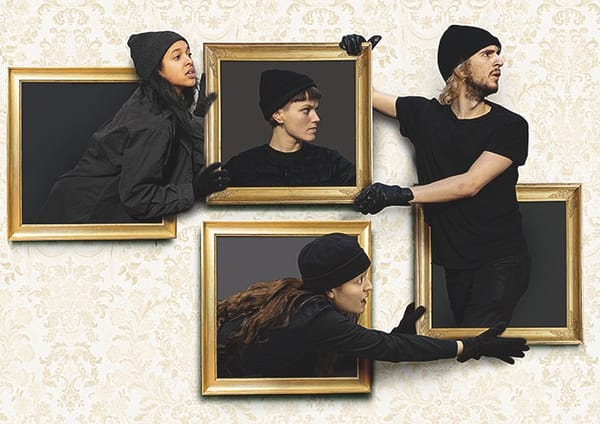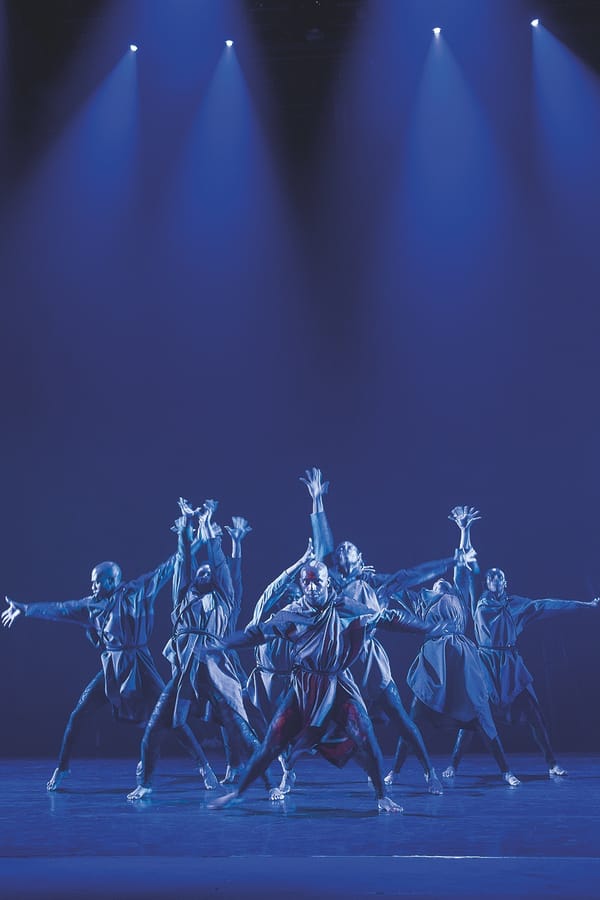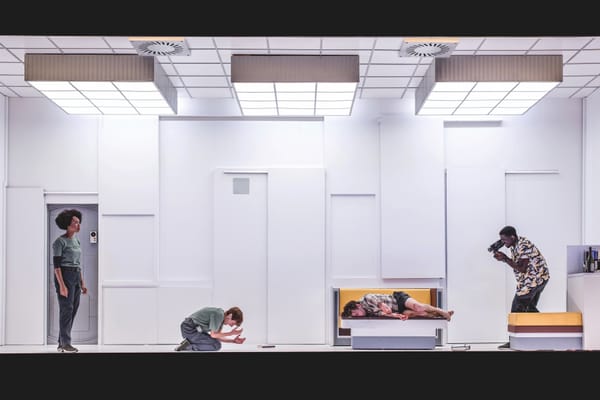[Blank]- Giving Justice to Women’s Voices
[Blank] focuses on bringing women in the criminal justice system back into the dialogue
![[Blank]- Giving Justice to Women’s Voices](/content/images/size/w1200/file/felixonline/2019_felix_issues/issue_1732/1732_arts_blank.jpg)
5 stars
A mother who excitedly enters into a new alluring relationship is later horrifically murdered by her new lover. Another mother navigates the demands of her eldest daughter who desperately appeals to her to help fund her habits. Two young girls, who meet in foster care, struggle over the power balance of a shared bedroom. These are a mere snapshot of the 100 scenes which complete Alice Birch’s [BLANK], of which she has allowed directors across the country to select from, in order to create their own masterpiece plays. Each scene was created and inspired by women affected by the criminal justice system allowing us an insight into their ever-spinning, ever-flawed, world.
Director Maria Aberg has carefully selected 30 of these scenes to create the Donmar Warehouse’s own incredibly haunting version of Birch’s [BLANK]. This creation was born to mark the 40th anniversary of theatre company Clean Break, which was founded by two female prisoners who believed in the power of theatre and wanted to keep the subject of women in prison at the forefront of our discussion. I can honestly say that the founding mothers of Clean Break have achieved their goal, at least within myself, as days on I am still left contemplating the beautifully woven scenes which have stemmed many conversations.
The majority of scenes were brief, standalone snippets of how the prison system impacts the many facets of a woman’s life. However, it was not difficult to see the strands which ran between the vignettes. During the latter half of the play, we switch drivers and instead gain an invitation to a dinner party where a group of friends gather together to eat, drink and be merry. Amongst the guests is Shona Babayemi, one of Clean Break’s very own, who is set to meet the group for the first time, accompanying her new girlfriend. We come to know the group as a community serving bunch; a solicitor, therapist and publican amongst them. With the help of Babayemi’s provocative dialogue, she unveils the hypocrisy and all to near parallels which run between our group of philanthropists and the wonderful women we met earlier. With the same actress playing both a quirky activist with a seemingly innocent weekend habit and the aforementioned desperate daughter, we are reminded of the similarities rather than differences that we all share as women and encouraged to contemplate our own blind self.
The monumental acting delivered by the entire female-only cast coupled together with the poignant setting was ever so slightly dampened by the, at times, unrealistic dialogue. This however is an afterthought to the sheer awe that the audience sat in as we marvelled at both the wonder of the cast and the stark reality of their stories. An absolute must watch.









